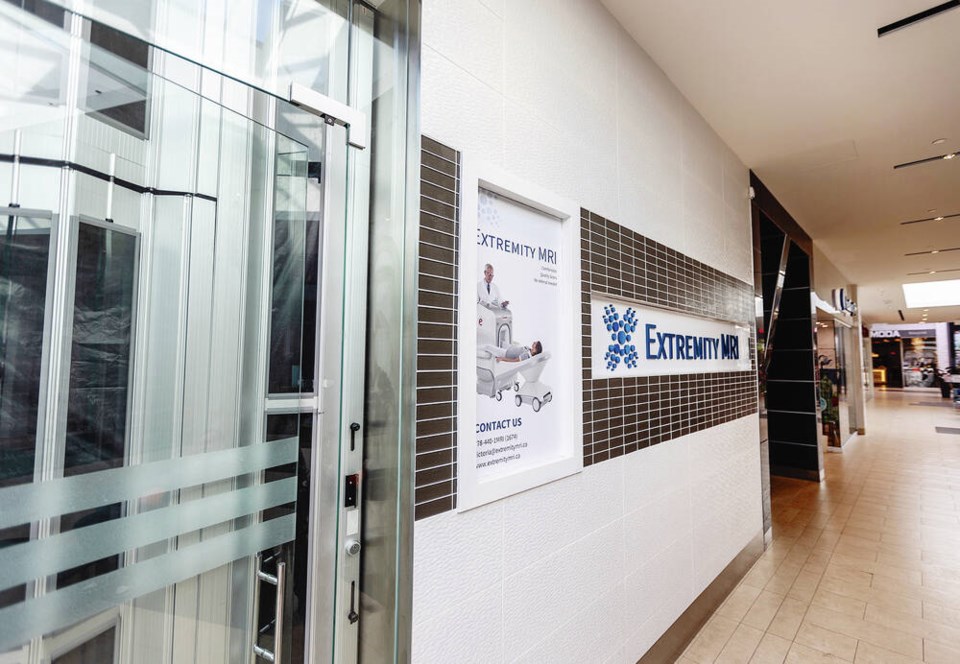A company that planned to offer $750 private-pay MRI scans from a location in Hillside shopping centre is considering a new business model after running into roadblocks that have stopped it from opening its doors.
Extremity MRI has already leased the space and had planned to open in the spring or summer of last year, providing scans of extremities such as knees, ankles, feet, hands, wrists, forearms and elbows.
It says on its website, however, that it was denied accreditation by the B.C. College of Physicians and Surgeons.
It says it’s still trying to meet the college’s conditions, but in the meantime, it’s repositioning to hopefully provide publicly insured scans.
In B.C., MRIs, which use a magnetic field and radio wave pulses to create detailed 3D images, are typically used in public hospitals to create images of internal organs, blood vessels, muscles, joints, tumours and areas of infection.
MRI and CT scans are insured benefits covered under the Medical Services Plan when delivered in a diagnostic facility approved by the Medical Services Commission.
Physicians can refer patients to a public or private facility, but in the case of the private option, the patient pays.
WorkSafeBC and ICBC use some private-pay services for their clients.
Extremity MRI co-owner and lawyer Brittany Buna declined comment on the ongoing accreditation process. The other lawyer behind the company is not named in documents.
The company’s website says clinics are “coming soon” in Victoria, Chilliwack and Prince George. However, the ownership, plans and business models for the Chilliwack and Prince George locations are different.
The College of Physicians and Surgeons said it is not able to discuss an individual facility’s accreditation status and cannot disclose why there may have been delays in accreditation approval.
“Facilities that are not compliant with all of the requirements for accreditation, do not receive an accreditation award,” the college said in a statement via email. However, facilities can continue to seek accreditation until they demonstrate compliance.
The Diagnostic Accreditation Program assesses facilities to ensure they meet accreditation standards for the services they provide and meet provincial standards of quality, it said. It offers provisional accreditation and full accreditation for those in full compliance.
The program involves continuous assessments that take place during a four-year cycle, with an on-site assessment at least every two years when there is a significant change in service.
The college said that once a new full accreditation is granted, it is valid for five years.
ceharnett@timescolonist.com
>>> To comment on this article, write a letter to the editor: letters@timescolonist.com



